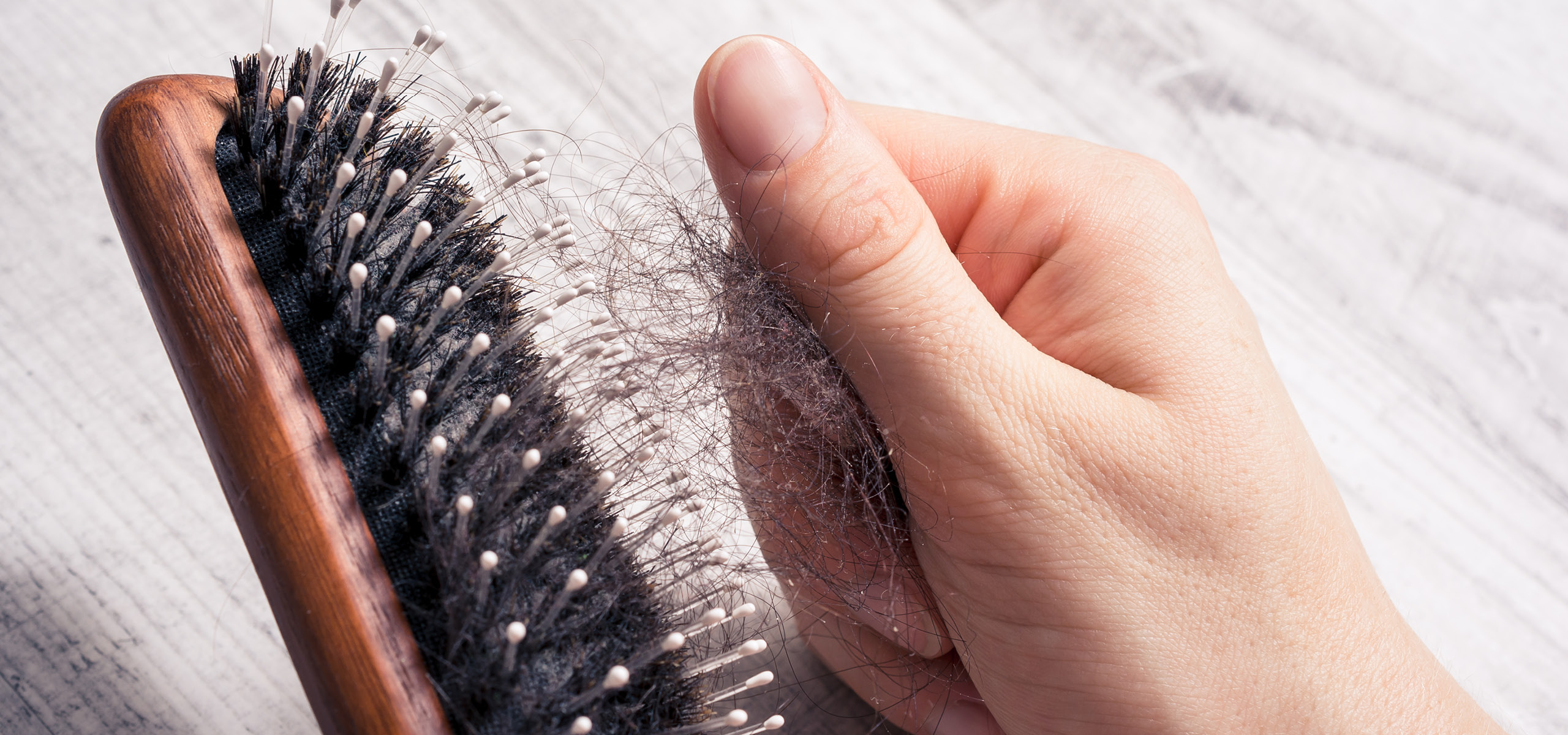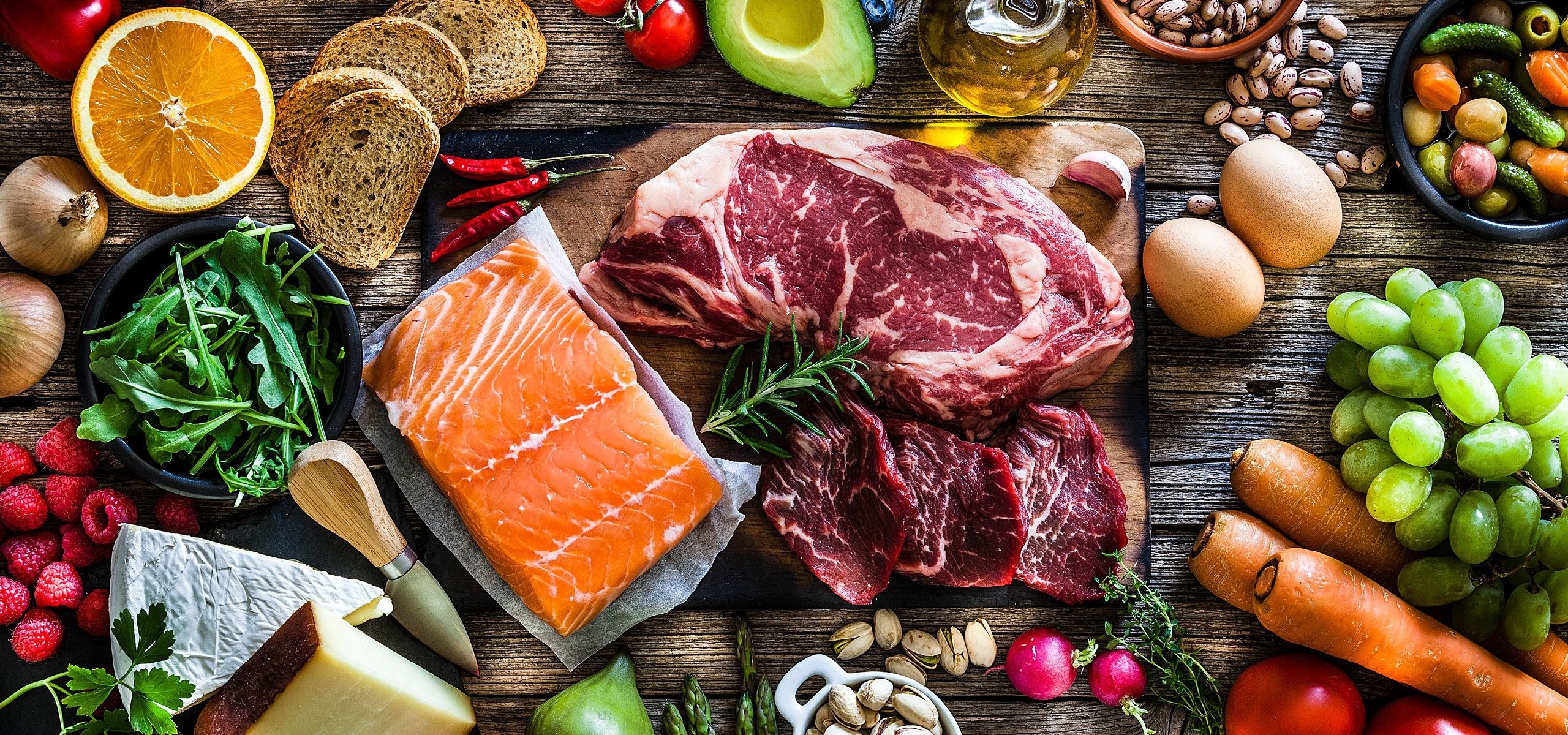Hair loss
Hair loss is a common issue for both men and women and can be a distressing experience for those going through it. Understanding the causes and natural therapies, diet and lifestyle recommendations that may be of assistance can be helpful.

What are the symptoms of hair loss?
The signs and symptoms of hair loss vary according to whether the affected person is male or female.
Regardless of the form of hair loss experienced, many affected people find that it affects their self-esteem and general wellbeing.1
Hair loss in men
Up to 50% of men experience some degree of hair loss by the time they reach their 50s,2 with a significant percentage ultimately becoming partially or completely bald.
Men generally begin to lose hair from the crown of their head and their forehead above the hairline. Over time this patch of hair can increase in size until there is little to no hair on the top of the head, while still some hair on the sides and at the base of the scalp.
Hair loss in women
Hair loss tends to develop at a later age in women, with up to 50% of women experiencing some degree of hair loss at some stage of their lives.2
Compared to men, women are less likely to experience a receding hairline or become bald, and instead tend to experience a general, diffuse thinning of the hair, most significantly towards the front of the scalp and on the crown of the head.2
What causes hair loss?
Under normal circumstances, the hairs on your scalp undergo a continual process in which each individual strand moves through a cycle of being in a growth phase, a transition phase and a period of resting and being shed.1
Issues with hair loss arise when more hairs are in the resting/shedding phase than those in the growth phase.
From the perspective of traditional Chinese medicine (TCM), the health of the hair is considered to be a representation of the health of the blood. The blood nourishes the hair and other tissues in the body via the energy channels that flow through the body.
In Chinese medicine, it’s traditionally believed that too much heat in the blood can lead to hair loss.4
Natural therapies for hair loss
Biota: traditionally used to decrease hair loss
Biota (found in Hair Tonic) is a herb traditionally used in Chinese medicine to cool excessive heat in the blood, and to maintain healthy hair follicles (the small pockets in the scalp that each individual hair grows from).
Also known as Chinese thuja, biota is traditionally taken in TCM to reduce hair loss as well as to promote hair growth.
Always read the label. Follow directions for use. If symptoms persist, talk to your health professional.
Nutrients used for hair loss
Eating a healthy, well-balanced diet is important for maintaining good hair health, although there are specific nutrients that are quite helpful if you are concerned about hair loss.
Biotin is a B-vitamin (found in Hair, Skin & Nails) that can help to decrease hair loss if you aren’t getting sufficient amounts of it in your daily diet. Biotin can be found in foods such as almonds, eggs (specifically the yolk), sweet potato and spinach.
Zinc is a mineral that is helpful for supporting hair health, so look out for foods rich in this important mineral such as meat, oysters, legumes and pumpkin seeds.
Always read the label. Follow directions for use. If symptoms persist, talk to your health professional.

Diet and lifestyle recommendations for hair loss
- Eat well by incorporating high-quality protein and fruits and vegetables, as well as sources of fat from fish, nuts, seeds and cold-pressed oils
- In TCM, foods that nourish the blood (and the health of the hair) include dark green leafy vegetables, seaweeds, spirulina, sprouts, legumes, whole grains, goji berries, dried apricots, dark grapes, blackberries, meat and eggs
- Steer clear of things that encourage excessive heat in the blood including processed, fatty and sugary foods as well as alcohol, tobacco and environmental pollution
- Wear a hat to protect your hair from the UV rays of the sun, which may make hair loss worse or cause exposed scalp to become sunburnt3
- Wear a bathing cap if swimming in chlorinated pools
- Be gentle with your hair; avoid rough brushing, heating the hair (with dryers and straighteners), harsh chemicals (such as bleach and dyes) and hair styles that pull on the hair
- Hair loss can affect your emotional wellbeing, so seek out a counsellor for support if this is the case
References
- Batrinos ML. Hormones 2014;13(2):197-212.
- McElwee KJ, Shapiro J. Skin Therapy Letter. 2012;17(6).
- Kaliyadan F, et al. Indian J Dermatol Venereol Leprol 2013;79:613-625.
- Bensky D, Clavey S, Stoger E. Chinese Herbal Medicine Materia Medica 3rd Edition, 2004. Eastland Press p. 709.
















